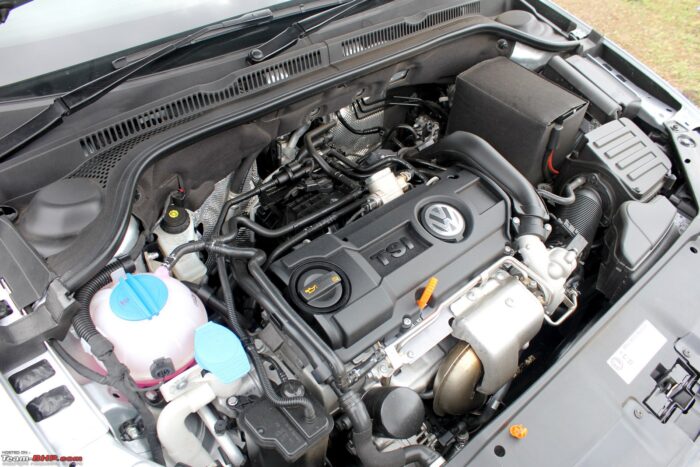Volkswagen’s 1.4-liter CAXA TSI engine was a technological tour de force, powering their vehicles from 2006 to 2016 and becoming one of the most widely used engines in its generation. Featuring eight models with varying designations – including EA111-TSI, CAVD, CBZA, CBZB ,BMY , BWK,,CAVA CDGA and CTHA — this robust motor truly revolutionized propulsion technology for Volkswagen cars over the decade it was produced.
Engine specifications for VW CAXA 1.4 TSI 122 hp
| Displacement |
1390 cc |
| Power system |
Direct Injection |
| Engine power |
122 hp |
| Torque |
200 Nm |
| Cylinder block |
Cast iron R4 |
| Cylinder head |
Aluminum 16v |
| Cylinder diameter |
76.5 mm |
| Stroke |
75.6 mm |
| Compression ratio |
10 |
| Engine features |
DOHC |
| Hydraulic compensators |
Yes |
| Timing Chain/Belt |
Timing Chain |
| Variable Valve Timing (VVT) |
intake |
| Turbocharger |
KKK K03 |
| Oil capacity/Recommended oil |
3.6 l 5W-30 |
| Fuel type |
Premium, Supreme |
| Euro class |
EURO 4/5 |
| Average lifespan |
275 000 km |
The catalog weight of the CAXA engine is 130 kg
The CAXA engine number is located on the joint between the block and the box

Fuel consumption Volkswagen 1.4 САХА
The 2010 Volkswagen Golf with manual transmission as an example (l/100km):
| City |
8.2 l |
| Highway |
5.1 l |
| Combined |
6.2 l |
What cars have the Engine САХА 1.4 tsi 122 hp
Audi
| A1 1 (8X) |
2010 – 2014 |
|
Seat
| Toledo 4 (KG) |
2012 – 2015 |
|
Skoda
| Octavia 2 (1Z) |
2008 – 2013 |
| Rapid 1 (NH) |
2012 – 2015 |
| Yeti 1 (5L) |
2010 – 2015 |
|
Volkswagen
| Golf 5 (1K) |
2007 – 2008 |
| Golf 6 (5K) |
2008 – 2013 |
| Golf Plus 1 (5M) |
2009 – 2014 |
| Eos 1 (1F) |
2007 – 2014 |
| Jetta 5 (1K) |
2007 – 2010 |
| Jetta 6 (1B) |
2010 – 2016 |
| Passat B6 (3C) |
2007 – 2010 |
| Passat B7 (36) |
2010 – 2014 |
| Scirocco 3 (137) |
2008 – 2014 |
| Tiguan 1 (5N) |
2010 – 2015 |

Problems of the VW CAXA
- The most known problem is the stretching of the timing chain at low mileage.
- Also the electronic control valve or the westgate often fails in the turbine
- The pistons are less resistant to detonation and crack from bad fuel
- If the plates between the rings are destroyed, it is recommended to buy forged pistons.
- Left-handed gasoline causes deposits on the valves and leads to compression loss
- Owners regularly complain about antifreeze leaks and engine vibration when cold


0 Comments